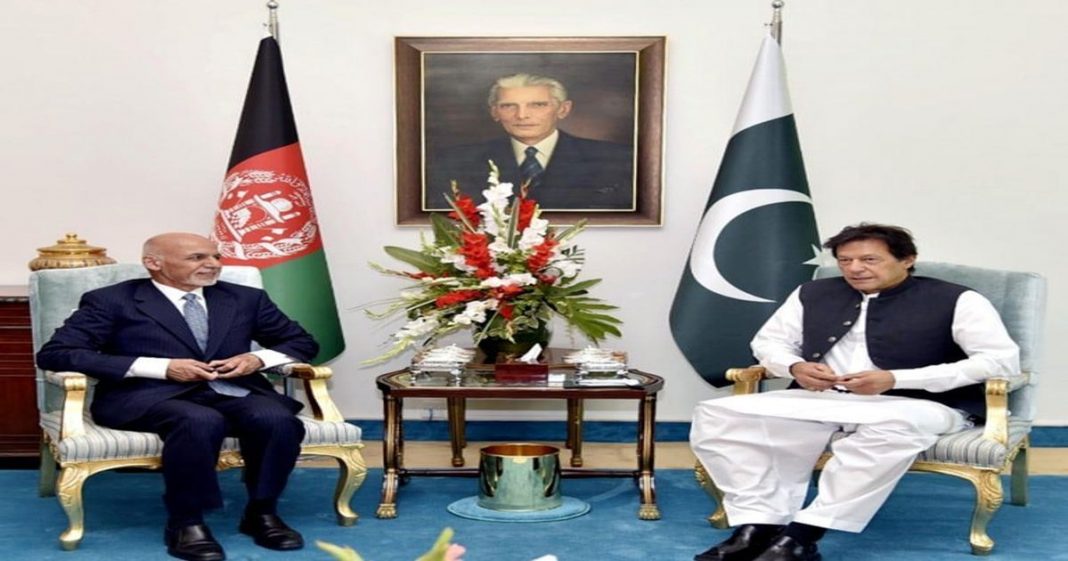Many Pakistanis wonder why there is such acrimony and deep suspicion among Afghans against them despite so many ‘favours’ to Kabul. After all, Islamabad provided Afghanistan with easy access to the sea, played a historic role in helping Afghanistan defeat Soviet forces in the 80’s and has for decades played host to huge numbers of Afghan refugees.
Islamabad’s favours to Kabul
In fact, there is a strong belief that without Pakistan’s active involvement in the war against the former Soviet Union, Afghanistan could not have been liberated from foreign occupation.
Not only that, Pakistan has consistently provided vital economic assistance in many different forms– food aid, funds for reconstruction, the construction of roads, hospitals, university blocks as part of its assistance program.
Read more: Op-ed: Pakistan should be cautious of the TTP even as terror group loses relevance in a new…
Hundreds of Afghan students have been educated in Pakistani educational institutions– at the expense of the state. Thousands are seeking medical help in Pakistani hospitals while there are still more than 1.3 million registered Afghan refugees spread all over the country.
This support and generosity should have created enormous goodwill for Pakistan. For many years, Afghans were not required to obtain visas to visit Pakistan. Thousands would cross over every day at Torkham and Chaman border crossings without any travel documents. Only recently has this free travel been halted for security reasons.
Roots of mistrust
To those who have not followed events closely in the context of the ups and downs of bilateral relations between the two countries, it is an enigma that today there is such negativity from Afghanistan towards its eastern neighbor.
But a closer look at the recent history of the region can provide some answers regarding the huge trust deficit that exists in many forms between Kabul and Islamabad.
In the wake of the Soviet invasion of Afghanistan towards the end of 1979, Pakistan played a key role in hosting refugees and training mujahideen fighters to combat the threat of a permanent occupation. But there was a problem.
Disproportionate support from Islamabad to one group against others created doubts in the minds of the mujahideen leadership. The notion or belief grew among Afghans that by supporting one or two particular ‘favorites’ Pakistan wanted to create an environment for its chosen groups to dominate the country. And this suspicion lingered until it became an ingrained part of the Afghan psyche.
Read more: US thanks Pakistan for aiding in Afghanistan peace process
Satisfying American friends
Pakistan welcomed the emergence of Taliban and was quick to recognize their government after they seized Kabul in 1996. Relations improved and there was lot of bonhomie on both sides. When 9/11 happened however, on a midnight phone call between then US Secretary of State Colin Powell and former Pakistani ruler General Musharraf, things changed. Pakistan conceded to all US demands.
Musharraf, anxious to get his government recognized and to earn credibility, agreed to provide air bases to US forces from where war planes would fly to destroy the Taliban government’s installations and eliminate their leaders.
Musharraf also agreed to hand over more than 500 Taliban supporters to the US to be incarcerated in Guantanamo Bay indefinitely. Afghanistan’s ambassador to Pakistan was also handed over to US forces– and went on to face torture and detention in Guantanamo.
In this way, the most pro-Pakistan government ever to assume control in Afghanistan was destroyed with the active involvement of Pakistan. It created an acute sense of frustration and hostility not only among the Taliban but across the entire country. The feeling grew in Afghanistan that Islamabad was an unreliable ally.
Treatment of Afghan refugees
The other reason was the treatment meted out to Afghan refugees in some parts of the country. Although it was not government policy to make life difficult for helpless Afghans, a resentment began to brew among the refugees at the treatment they received from state institutions as some of the most vulnerable communities in the country.
There were some forcible repatriations citing ‘security’ reasons which caused disappointment. The raising of the wall along the 2000 km long border caused dismay and profound resentment. This was because the Durand line cuts across tribes, and the border tribesmen could visit their lands and relatives on the other side of the border.
Read more: Pakistan: US must remain engaged in rebuilding Afghanistan after troops leave
Most importantly they used to engage in trade– a lifeline for hundreds of thousands of people living along the border on both sides.
All that has changed.
A bid to seek a political foothold in Afghanistan?
The border fencing– an ill-advised project– has created more antagonism. There is now a pervasive feeling of hostility, and an overwhelming majority of Afghans now believe that Pakistan’s support to the mujahideen in the 80’s was motivated by considerations of seeking a permanent political foothold in their country.
This feeling is reinforced by the perception that Pakistan is seeking to restrict the role of India in Afghanistan. Afghans deeply resent this dimension of Islamabad’s policy, one that aims to restrict New Delhi’s role in their country because India has contributed enormously to the reconstruction of the war-torn country.
Delhi is in fact, the fifth biggest donor to Afghanistan. Afghans argue that Afghanistan needs help; and India provides help. Pakistan however, alleges that by using Afghan territory, India is trying to destabilize Pakistan through its agents. Generally, most Afghans don’t buy this argument.
Read more: Peaceful Afghanistan is in Pakistan’s interest: PM Khan
Over time, perhaps this hostility will fade. But it will need a prudent and well-orchestrated campaign to learn from the mistakes of the past and launch a new chapter in relations.
The new approach must be premised on different assumptions: that Pakistan has no favorites. That it believes in an Afghanistan that is stable and peaceful, and that Afghans alone are the arbiters of their destiny. No country can gain as much from Afghanistan’s stability and peace as Pakistan. And no country will suffer as much from its instability as Pakistan.
Rustam Shah Mohmand is a specialist of Afghanistan and Central Asian Affairs. He has served as Pakistan’s ambassador to Afghanistan and also held the position of Chief Commissioner Refugees for a decade. The article originally appeared in The Arab News and has been republished with the author’s permission. The views expressed in this article are the author’s own and do not necessarily reflect the editorial policy of Global Village Space.














